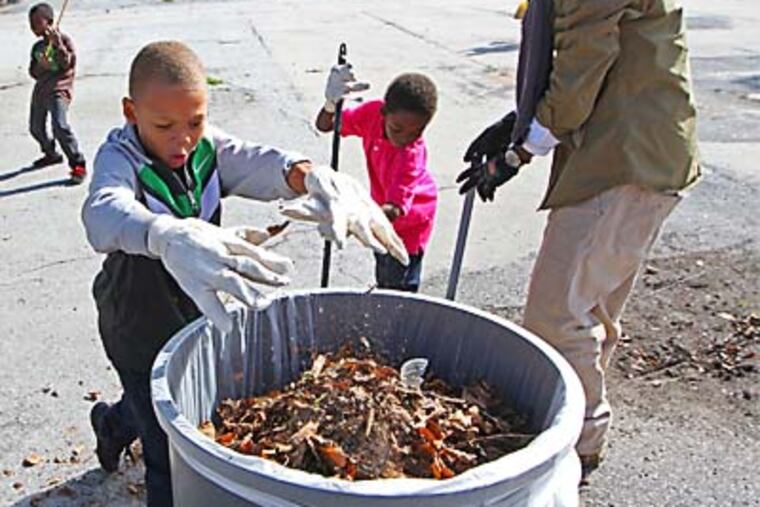Cleaner, greener and healthier
Mayor Nutter recently announced a crackdown on neglected properties, noting the economic and environmental consequences of blight. But new research suggests that such properties can also affect the health of a neighborhood's residents.

Mayor Nutter recently announced a crackdown on neglected properties, noting the economic and environmental consequences of blight. But new research suggests that such properties can also affect the health of a neighborhood's residents.
The study published this week focused on more than 4,000 vacant city lots that have been cleaned up and planted with grass and trees under the Pennsylvania Horticultural Society's Vacant Land Stabilization Program. Researchers at the University of Pennsylvania found there were fewer gun crimes in neighborhoods where lots had been "cleaned and greened." Some residents also reported experiencing less stress and exercising more.
The idea that cleaning and greening vacant lots improves health makes sense to me as a physician. Exercise is important for cardiovascular health and weight management. But people may not exercise in neighborhoods where they don't feel safe. And abandoned, overgrown, trashy lots are magnets for crime.
Besides encouraging exercise, greener surroundings can reduce stress and mental fatigue. Green space may also serve as a common meeting place for neighbors, building social ties that are also important for health.
I recently interviewed some West Philadelphia residents about the impact of vacant property in their neighborhoods. Those living near blighted properties talked about drug-dealing, prostitution, and other illegal activity happening on and around those properties. Many described seeing used needles and condoms in places where children might play. Vacant lots also encourage illegal dumping and attract raccoons, opossums, mice, and other animals.
Beyond the physical health implications, all of this is toxic to residents' mental health. The people I talked to said the vacant property in their neighborhood made them feel scared, sad, and angry. "It makes you question where you call home," one said. "It's a downer." Feelings like these lead to chronic stress, which can contribute to heart disease and other illnesses.
The Pennsylvania Horticultural Society's greening program was previously shown to increase the value of nearby property. That it also appears to improve residents' health and safety makes greening an even more attractive means of dealing with vacant land. In fact, other cities are already looking to Philadelphia as a model for addressing such properties.
The Nutter administration, which is also working to revamp the management of city-owned vacant properties, should be applauded for its efforts to aggressively and creatively deal with a problem that has plagued the city for decades. And going forward, health and safety should be part of its rationale. Managing vacant land is not only an economic development priority, but also a strategy for making Philadelphians safer and healthier.